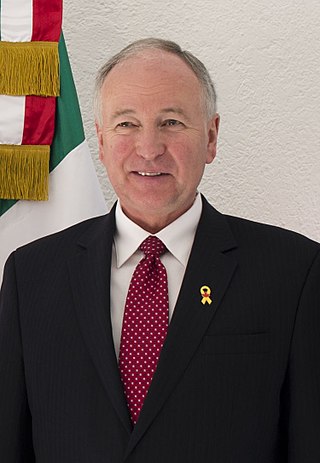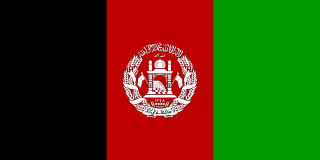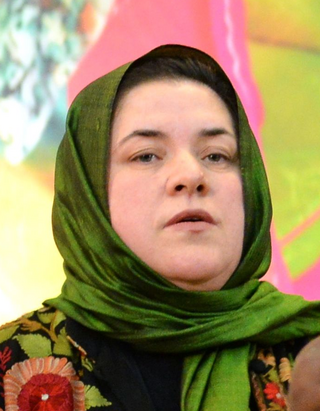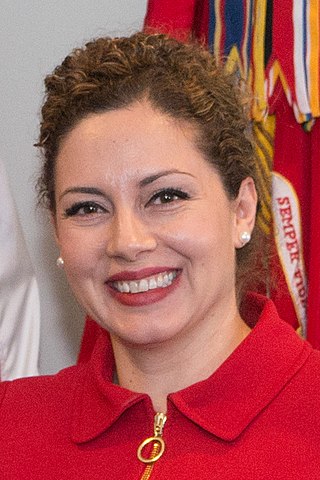
The government of Afghanistan is currently disputed following the effective collapse of the Islamic Republic of Afghanistan during the fall of Kabul to Taliban forces on 15 August 2021 and the subsequent re-establishment of the Islamic Emirate of Afghanistan which now exercises de facto control over most of the country. On 7 September 2021 the Taliban officials in de facto control of most of Afghanistan announced a new interim government headed by Mullah Mohammad Hassan Akhund as Prime Minister. The government is subject to the oversight of the Taliban's Supreme Leader, Haibatullah Akhundzada. As of 8 September 2021, the Islamic Emirate of Afghanistan has not yet been formally recognized as the de jure government of Afghanistan by any other country. The representatives appointed by the Islamic Republic of Afghanistan continue to represent the country at the United Nations. These representatives have refused to recognize the Taliban appointed government and have urged other countries to not recognize this government either.

Mohammad Ashraf Ghani Ahmadzai is an Afghan former politician, academic, and economist who served as the president of Afghanistan from September 2014 until August 2021, when his government was overthrown by the Taliban.

The Ministry of Defense is the cabinet ministry of Afghanistan responsible for overseeing the military of Afghanistan. The ministry is located in Kabul.

Gordon James O'Connor, is a retired brigadier-general, businessman, and lobbyist, who served as Conservative Member of Parliament from 2004 to 2015.

Robert Douglas Nicholson is a Canadian politician who represented the riding of Niagara Falls in the House of Commons of Canada from 2004 to 2019 as a member of the Conservative Party. Under Prime Minister Stephen Harper, he served as Minister of National Defence, Minister of Justice, Minister of Foreign Affairs, and Leader of the Government in the House of Commons. When the Harper Government ended, he was appointed Justice Critic in the Official Opposition shadow cabinet.

The Transitional Islamic State of Afghanistan (TISA), also known as the Afghan Transitional Authority, was the name of the temporary transitional government in Afghanistan put in place by the June 2002 loya jirga. The Transitional Authority succeeded the original Islamic State of Afghanistan, and preceded the Islamic Republic of Afghanistan (2004–2021).

The Council of Ministers of the Islamic Emirate of Afghanistan is the executive body of the government of Afghanistan, responsible for day-to-day governance and the implementation of policy set by the Leadership. It is headed by the prime minister—who serves as the nation's head of government—and his deputies, and consists of the heads and deputy heads of the government ministries.

Franz Josef Jung is a German politician of the Christian Democratic Union (CDU). He became Federal Minister of Defence in the Grand coalition cabinet of Angela Merkel on 22 November 2005. In October 2009 he became Minister of Labour and Social Affairs but resigned a month later.
The Ministry of Foreign Affairs of the Islamic Emirate of Afghanistan (MoFA) is the cabinet ministry responsible for managing the foreign relations of Afghanistan.

Mohammad Haneef Atmar is an Afghan politician and former KhAD agent. He served as the Minister of interior until he was removed from the Ministry by Hamid Karzai in the wake of attacks on the June 2010 Afghan Peace Jirga. Before that he worked with several international humanitarian organisations and served as Minister of Rural Rehabilitation and Development and Minister of Education. In 2011, he was part of the Right and Justice party. During his time in office, he has visited several countries to get funding to stabilise Afghanistan.

The Ministry for the Propagation of Virtue and the Prevention of Vice is the state agency in charge of implementing Islamic law in the Islamic Emirate of Afghanistan as defined by the Taliban. It was first instituted in 1992 by the Rabbani government of the Islamic State of Afghanistan and adopted in 1996 by the Taliban government of the Islamic Emirate of Afghanistan of 1996–2001. The ministry was restored in the reinstated Islamic Emirate in September 2021 after the August fall of Kabul.

Current and past governments of Afghanistan have included a Minister of Commerce in the Afghan cabinet. The Ministry of Commerce and Industries creates the enabling environment for sustainable and equitable economic growth and opportunity for all Afghans by promoting private sector development in a socially responsible free market economy. The Ministry has three basic goals: a) to promote the establishment and implementation of a legal and regulatory framework necessary for a free market economy b) to integrate Afghanistan into the regional and global economy and c) to facilitate and promote the development of a dynamic, competitive private sector.

Nisrin Hader(2007) is an Afghan minister, gynecologist and obstetrician. She won awards for her work and in 2015 she was made a minister.

Harjit Singh Sajjan is a Canadian politician who has served as the minister of emergency preparedness and the president of the Privy Council since July 26, 2023. A member of the Liberal Party, Sajjan represents the British Columbia (BC) riding of Vancouver South in the House of Commons, taking office as member of Parliament (MP) following the 2015 election.

Maryam Monsef is an Afghan Canadian former politician. She first was elected to represent the riding of Peterborough—Kawartha as a Liberal member the House of Commons of Canada from 2015 and served until October 2021. A member of the 29th Canadian Ministry, she is the former Minister for Women and Gender Equality, sworn in on January 10, 2017, and Minister of Rural Economic Development, sworn in on November 20, 2019. She was previously the Minister of International Development, until November 20, 2019, and Minister of Democratic Institutions and President of the Queen's Privy Council for Canada until January 10, 2017. Monsef was defeated in her riding in the 2021 federal election.

Olta Xhaçka is an Albanian politician and Socialist Party member of Parliament. She served as the minister of Europe and foreign affairs from January 2021 to September 2023. She served as Albanian minister of social welfare and youth between March 2017 to August 2017 and as minister of defense from September 2017 to December 2020.
The Chief of Staff of the Armed Forces is the highest-ranking military officer in the military of Afghanistan, who is responsible for maintaining the operational command of the military.

The supreme leader of Afghanistan, officially the supreme leader of the Islamic Emirate of Afghanistan and also styled by his religious title Amir al-Mu'minin, is the absolute ruler, head of state, and national religious leader of Afghanistan, as well as the leader of the Taliban. The supreme leader wields unlimited authority and is the ultimate source of all law.
The politics of Afghanistan are based on a totalitarian emirate within the Islamic theocracy in which the Taliban Movement holds a monopoly on power. Dissent is not permitted, and politics are mostly limited to internal Taliban policy debates and power struggles. As the government is provisional, there is no constitution or other basis for the rule of law. The structure is autocratic, with all power concentrated in the hands of the supreme leader and his clerical advisors. According to the V-Dem Democracy indices Afghanistan was as of 2023 the 4th least electoral democratic country in the world.
The government of Afghanistan, officially called the Islamic Emirate of Afghanistan, is the central government of Afghanistan, a unitary state. Under the leadership of the Taliban, the government is a theocracy and an emirate with political power concentrated in the hands of a supreme leader and his clerical advisors, collectively referred to as the Leadership. The Leadership makes all major policy decisions behind closed doors, which are then implemented by the country's civil service and judiciary. As Afghanistan is an Islamic state, governance is based on Sharia law and Pashtunwali, which the Taliban enforces strictly through extensive social and cultural policy.















